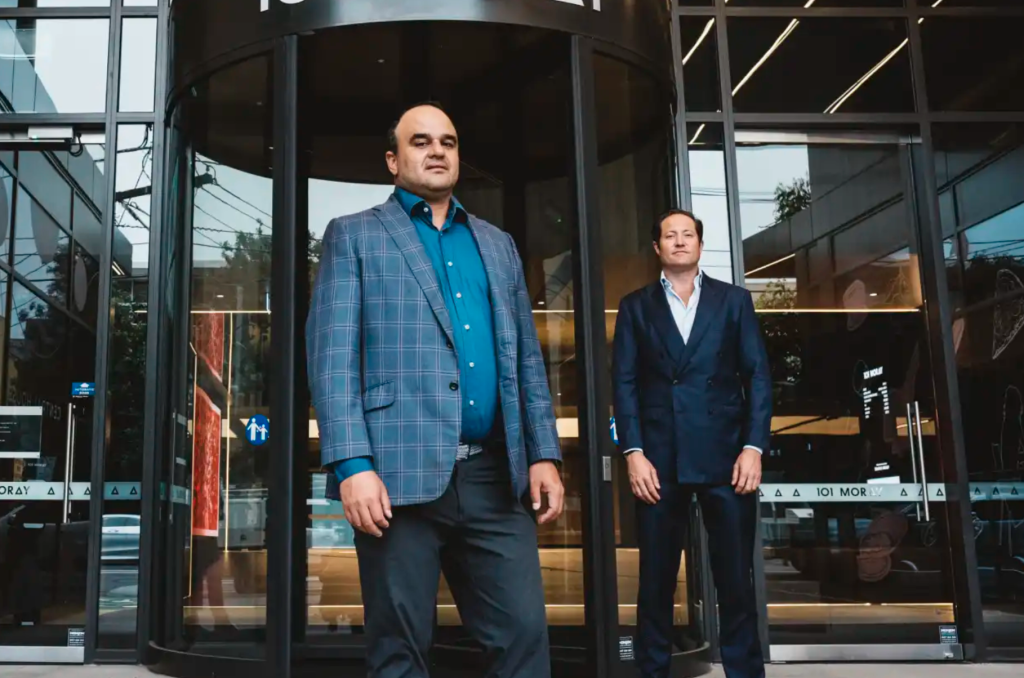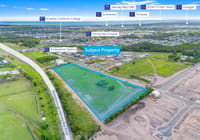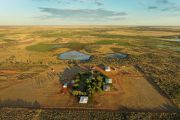
Pandemic puts a rocket under proptech
The pandemic has supercharged the proptech industry, with developers demanding technology to keep their occupants as safe as possible and suppliers adapting products already under development to become tools used for social distancing and health checks.
Deague Group’s new 18,000sq m office building in South Melbourne was planned – and much of it leased – before COVID-19 hit the Victorian capital, but the developer had to introduce changes to make the space as safe as possible and reassure new tenants ahead of the building’s opening next year.
Thermal imaging will check the temperature of people entering 101 Moray Street. Sensors will tell if they are wearing a mask. If the lobby is too full an alert will sound. And once through the lobby, entrants will follow directions on their mobile saying which lift to take at a pre-ordained time.
The JourneyHub platform, which combines consumer-level functionality with infrastructure controlling the building, sets a standard for what office landlords will be looking for in future, Deague Group managing director Jonathan Deague said.
“An all-in-one app, one platform, is certainly what I’ll be looking for,” Mr Deague said. “You’re going to see all buildings have to adapt to COVID, to go to the next level.”
The need of landlords over the world to convince users to come back to the office as they emerge from the storm of COVID-19 is driving an investment in technology that many so far have avoided – relying instead on largely manual processes – but about which they now have little choice.
“Buildings must now meet two new customer imperatives: convince me that my building is safe and will keep me healthy; convince me that the experience I will have in the office is worth getting out of my ugg boots for,” said Selina Short, consultancy EY’s Oceania managing partner for real estate, hospitality and construction.
“To crack both of these requires a technology layer that can provide these assurances and a better user experience. Investment in proptech is now a non-negotiable.”
It’s a new market and the race to develop these platforms is still in its early days.
In the case of the Rothelowman-designed 101 Moray Street, JourneyHub creator Unico adapted a system it was developing before COVID-19 to count people at desks and in rooms to allocate meeting rooms and other spaces. Unico combined that platform with thermal imaging and linked it with building management systems such as those controlling the lifts to create the all-in-one service.
The trick is to integrate the systems responsible for many different aspects of a building into one app.
“You don’t want to log into ten different applications,” said Evan Harridge, Unico’s director of innovation and enterprise. “The challenge is to integrate the different elements together – clicking on one button sequences all the systems behind the scenes.”
It’s likely to be a lucrative challenge. Australia’s biggest landlords have been vocally lobbying for an easing in restrictions that would allow workers populating their CBD towers to return and encourage employers to bring staff back. They’ll pay for a service that helps them do that at scale and across entire portfolios of buildings.
“The impetus for a solution that gets people back to the office in a way that is safe and also creates a great experience represents a massive opening,” EY’s Ms Short said.
“COVID has taken real estate from the backroom to the boardroom and this executive level focus creates a significant opportunity for whoever can get this right at scale.”
Tenant are keen for such services. ASX-listed outdoor advertising and media company oOh!media has taken 2000sq m in the 101 Moray Street building and will combine about 140 Melbourne staff from two separate offices in the building next year.
But the extra technology in the building will aid the company’s return-to-office program, oOh!media chief people and culture officer Steve Reid said.
“One thing for us, as people have started to come back to the office, post-COVID – we have a mix of models at the moment – is that sense of security,” Mr Reid said. “The technology itself in 101 Moray will help provide that level of assurance.”
There are clear players in this space already. Office portal provider Equiem, which already operates in Australia, the UK and US, is working on services to ease a return to office. New York-based Ility, founded by former Servcorp chief operating officer Marcus Moufarrige, offers a back-end software platform that lets landlords manage services ranging from flexible and long-term lease agreements and renewals to desk-cleaning requests.
Unico’s Mr Harridge downplays the notion of competition, however.
“We see our role as more the brain and spine of the buildings – connecting all the elements together, rather than replacing anything,” he said.
“It’s more about integration, being able to create journeys, sequences of events through connecting systems, rather than replacing them.”











